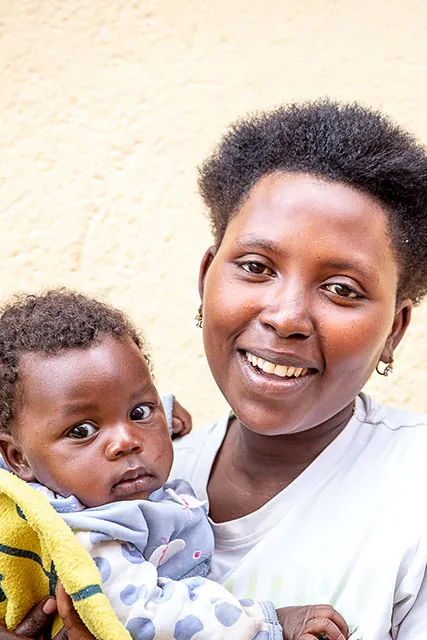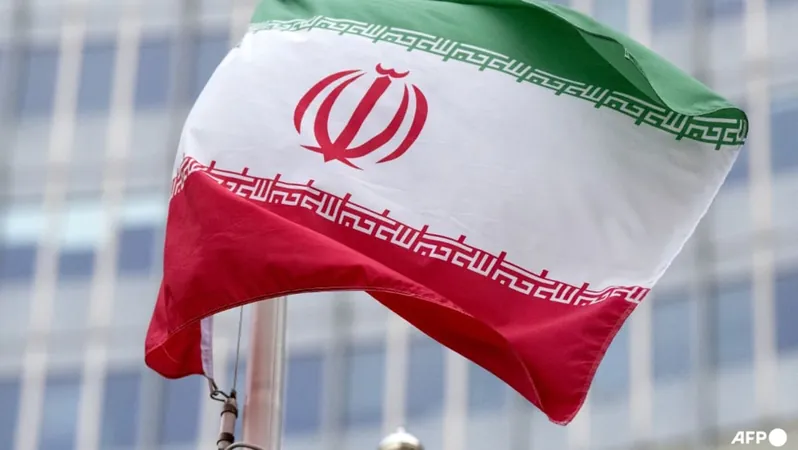
Major Grant Announced to Combat Sickle Cell Disease Globally
2024-11-18
Author: Wei Ling
Boston, Massachusetts, November 18, 2024 – The Clinton Health Access Initiative (CHAI) has announced a groundbreaking three-year, $8 million grant from Open Philanthropy, aimed at transforming the global fight against sickle cell disease (SCD). This marks the first significant investment dedicated specifically to shaping the market for effective SCD treatments worldwide.
Sickle cell disease is frequently described as one of the world’s most overlooked health crises. According to the Global Burden of Disease study, it ranks as the twelfth leading cause of death among children under the age of five, with nearly 515,000 infants affected each year, predominantly in Africa. Without accessible medical care, the outlook for these children is dire; many face serious infections, debilitating anemia, and a substantially increased risk of death from severe malaria. Experts warn that between 50 to 90 percent of children lacking proper care may not survive past their fifth birthday.
Dr. David Ripin, CHAI’s Executive Vice President of Infectious Diseases and Chief Science Officer, emphasized the need for urgent action, stating, “Sickle cell disease embodies the glaring inequities in global healthcare access. While there is a global focus on gene therapy as a potential cure, hundreds of thousands of children in low- and middle-income countries continue to die each year due to a lack of basic diagnostics and affordable treatments. This grant allows us to extend our proven track record of transforming deadly diseases into manageable conditions to combat SCD effectively.”
Accelerating Access and Affordability of Treatments
With this critical funding, CHAI plans to implement innovative market-shaping strategies designed to increase the availability and affordability of SCD diagnostics and treatments. The organization aims to reduce the cost of diagnostic tests by at least 25 percent and ensure that quality-assured (QA) SCD treatments, such as hydroxyurea, are priced competitively with current non-QA products.
Additionally, the funding will bolster the healthcare systems in countries with high rates of SCD, including Ghana, India, and Nigeria. CHAI intends to collaborate closely with national health ministries to broaden screening programs, enroll affected children in care, and guarantee continuity of treatment across these vulnerable populations.
Leslie Emegbuonye, CHAI’s Ghana Country Director, stated, “Early detection and prevention are essential in managing sickle cell disease. With this funding, we can prioritize health services for children under five who are living with SCD, ensuring that no child is overlooked.”
Advocacy and Comprehensive Care Initiatives
Despite the existence of straightforward diagnostic methods and affordable treatment options, access remains a critical obstacle in low- and middle-income nations. CHAI’s initiative aims not only to increase funding but also to implement a cohesive care model that will revolutionize outcomes for these children. By prioritizing early screening and timely treatment intervention, the initiative aspires to rewrite the narrative surrounding sickle cell disease.
The urgency of addressing SCD is reinforced by the understanding that proactive measures can significantly improve the quality of life for affected children, enabling them to lead healthy, fulfilling lives.
This momentous grant reflects a pivotal step towards not only addressing the immediate needs of children suffering from SCD but also fostering a global movement towards equitable healthcare access.
For more updates on this initiative and other impactful health access initiatives, stay tuned.


 Brasil (PT)
Brasil (PT)
 Canada (EN)
Canada (EN)
 Chile (ES)
Chile (ES)
 España (ES)
España (ES)
 France (FR)
France (FR)
 Hong Kong (EN)
Hong Kong (EN)
 Italia (IT)
Italia (IT)
 日本 (JA)
日本 (JA)
 Magyarország (HU)
Magyarország (HU)
 Norge (NO)
Norge (NO)
 Polska (PL)
Polska (PL)
 Schweiz (DE)
Schweiz (DE)
 Singapore (EN)
Singapore (EN)
 Sverige (SV)
Sverige (SV)
 Suomi (FI)
Suomi (FI)
 Türkiye (TR)
Türkiye (TR)